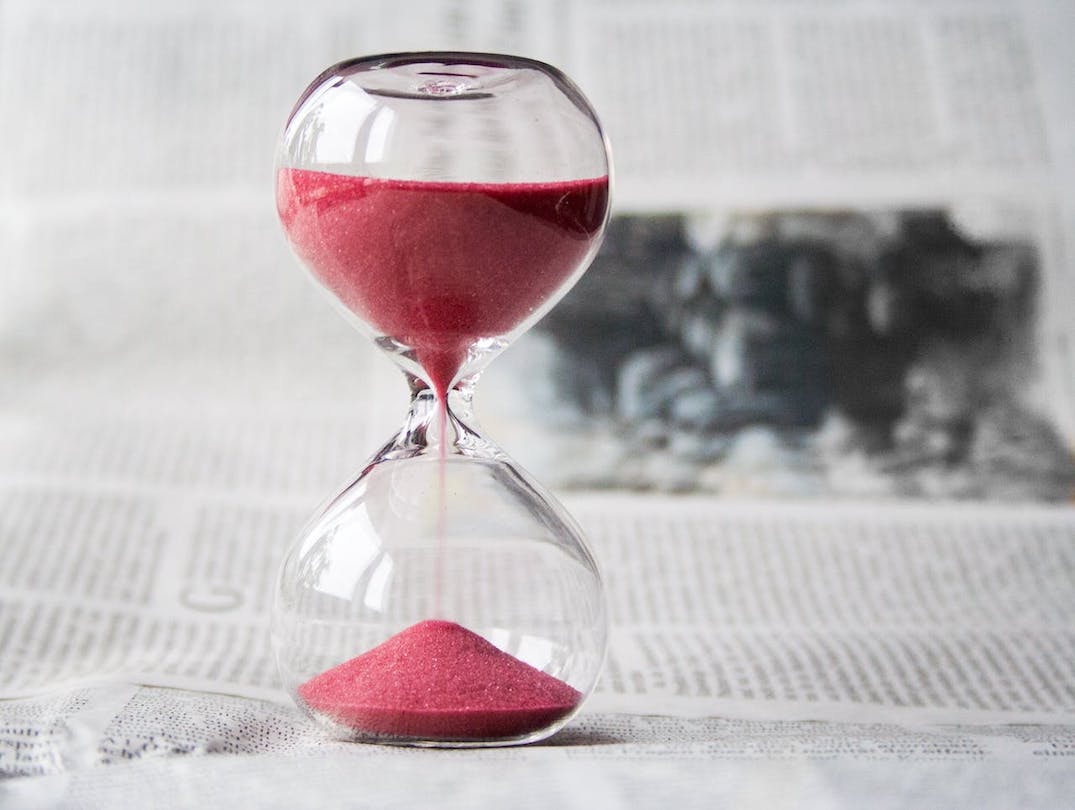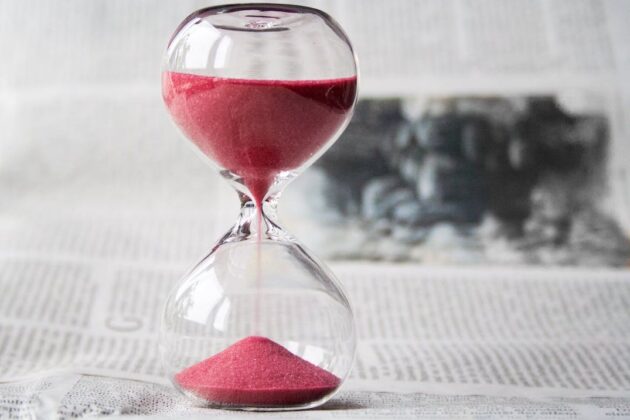Why Am I Not Losing Weight on Ozempic?
While Ozempic is not a weight loss drug, those who take it may experience weight loss. This is because the naturally occurring hormone that Ozempic mimics can slow digestion and tell your brain that you are full.
If you’re not losing weight on Ozempic, possible reasons include not exercising enough, not getting enough sleep, not adjusting your diet, or needing a higher dose.
If you want professional help with losing weight while taking Ozempic, we can match you with a Registered Dietitian who accepts your insurance here at Zaya Care. 90% of Zaya patients pay $0 for one-on-one nutritional counseling with our dietitians, and in-person and online visits are available.
This guide goes over why you may not be losing weight on Ozempic and what you can do to break through your plateau.

Reach your weight loss goals faster with support from a Registered Dietitian
90% of Zaya Care patients pay $0 for one-on-one counseling with an RD
Reasons you may not be losing weight on Ozempic
Before going into the possible reasons why you are not losing weight, let’s quickly take a look at average weight loss on Ozempic so you can get an idea of whether you’re on track or not.
Clinical trials have shown that patients who take a weekly dose of semaglutide typically lose 5% to 10% of their body weight. In one study published in 2022, patients who were overweight lost on average 5.9% of their body weight after three months of taking weekly semaglutide injections. The average weight loss after six months of weekly injections was 10.9%.
If you’re not meeting these benchmarks, it may be due to one of the following reasons:
1) You’re not adjusting your diet
Ozempic is designed to work with lifestyle changes such as healthier eating habits. To lose weight, it is still important to be in a calorie deficit. Clinical evidence has shown that semaglutide taken for weight loss is most effective in combination with lifestyle changes.
Bottom line: the right modifications to your diet are always necessary for successful weight loss. Using Ozempic alone does not magically cause weight loss without better eating habits and increased physical activity. You can learn more about the best foods to eat while taking Ozempic here.
2) You may need a higher dose
When Ozempic is first prescribed, it is required to start dosing at 0.25mg once a week for the first four weeks. At week five, your healthcare provider may increase your dose, depending on how your body responds.
You may find that Ozempic “stops working” after some time. This may be due to tachyphylaxis—the medical term for when your body develops a tolerance to medication.
Some people may need up to 2mg a week. Because everybody reacts differently to medications, it is important to discuss your dosage with your healthcare provider to make sure you are taking an amount that is appropriate for you.
3) You may have to wait longer
If you just started using Ozempic, you may not have noticed much weight loss—but this doesn’t mean that Ozempic is not working. One study found that patients taking 1.0mg of semaglutide lost on average 13 pounds in 56 weeks. While it is possible to lose more weight while taking Ozempic, you shouldn’t expect drastic changes right away.
4) You may need to exercise more
As mentioned above, Ozempic should be taken in addition to lifestyle modifications. Regular exercise can help increase your metabolism and burn more calories. A regular exercise routine will also be necessary to sustain your weight loss.
5) You’re stressed out
When you are stressed, your body releases the hormone cortisol. One weight loss trial has shown that chronic cortisol secretion is related to the accumulation of abdominal fat, which can make weight loss much more difficult.
In addition, those who are chronically stressed may do more emotional eating. People also tend to choose more high-fat, salty, or sugary foods when feeling stressed. Managing your stress is an important part of any weight loss journey.
6) You’re not getting enough sleep
Research has shown that not getting enough sleep can affect the number of calories you consume and burn throughout the day. This is because sleep deprivation can cause hormonal changes that affect your cravings. You may also not have enough energy to push yourself in a workout.
Aiming for seven to eight hours of sleep can ensure that your body is getting the proper rest it needs. You will not only feel more refreshed, but you will also recover better from your workouts and support hormonal balance which will set you up for a more successful weight loss journey.
7) You may have an underlying health condition
Certain underlying health conditions can make weight loss more difficult. For example, hypothyroidism is a condition of the thyroid which results in a slower metabolism. Polycystic Ovarian Syndrome (PCOS) is a health condition that affects many women in the United States which causes hormonal imbalances and oftentimes weight gain.
If you are taking Ozempic and have an underlying health condition, you may want to speak with your healthcare provider to see if you have other medical reasons for stubborn weight gain.
8) You are inconsistent with dosing
If you skip doses of Ozempic consistently, it may not be as effective. Being inconsistent with your medication makes it harder to predict how your body is going to respond. Try to stick to the same day of the week to take your dose so you won’t forget.
Consistency with your medication use, diet habits, and exercise is key for the best weight loss results.
Weight gain is also common when stopping Ozempic and other weight loss medications altogether.
9) You’ve hit a plateau
With any weight loss journey, it is common to hit a plateau. This means that your body has adapted to the diet and lifestyle changes you have made, which causes your weight loss progress to come to a stop.
When this happens, it is important to take a second look at your current diet and exercise routine to see where you can make some adjustments. Sometimes, a simple change in your workout routine, like adding more resistance training can help break your weight loss plateau.
10) You’re not eating enough protein
Eating enough protein throughout the day is crucial to managing your blood sugar levels and achieving a healthy body weight. Protein-rich meals and snacks keep you satisfied longer, which prevents you from overeating. Protein also helps your body build lean body mass from exercise, which helps to increase your metabolism.

Reach your weight loss goals faster with support from a Registered Dietitian
90% of Zaya Care patients pay $0 for one-on-one counseling with an RD
What to do if you’re not losing weight on Ozempic
There are a variety of factors that affect your body weight. As mentioned above, making the right lifestyle changes is very important for weight loss. It’s also important to make sure you understand how long it takes to lose weight on Ozempic as your expectations for weight loss may be above what’s expected. Below are some key things that you can do to make sure you lose weight while taking Ozempic.
- Talk to your doctor about your dosage. If you have been consistent with dosage and your lifestyle changes but are still not seeing any weight loss (or your weight loss has stopped while taking Ozempic), you may want to speak with your doctor about increasing your dose to an amount that is more effective for you.
- Ask your doctor what other changes you can make. Your dosage is not always the reason why you are not losing weight. Talk to your doctor about other lifestyle changes you should make to maximize your results.
- Make sure you’re not eating too many calories. It is possible to overeat while using Ozempic. You can either keep track of your calories to see how much you are really eating in a day or seek help from a nutrition expert about eating an amount that is appropriate for you. Meal prepping for weight loss is a great way to make sure you’re eating the optimal amount of calories every day.
- Work with a dietitian. There are many benefits to working with a dietitian. You can create a balanced, personalized nutrition plan that will help you manage your blood sugar and set you up for gradual, sustainable weight loss. Having additional accountability from a nutrition expert will help you stay motivated and stay on track.
- Make sure you’ve given Ozempic enough time to start working. Sometimes, weight loss just takes a little bit of patience. It may even take a few weeks to start to see weight loss take place after starting Ozempic.
- Get plenty of exercise. If you are not following a current exercise routine, it is best to start small, like going on daily walks. If you are relatively active, working with a personal trainer may be a good option for you to take your exercise routine to the next level.
- Get plenty of sleep. Try to aim for seven to eight hours of sleep every night to improve your energy throughout the day and to prevent any hormonal changes that can make weight loss more difficult.
- Make sure you’re hydrated. Studies have shown that drinking plenty of water may contribute to weight loss because it can prevent you from overeating. Additionally, choosing water and low-calorie hydrating beverages over sugary beverages can decrease your overall calorie intake.
- Reduce stress, if possible. As mentioned earlier, not managing your stress can make it much more difficult to lose weight. If you feel like you are frequently stressed, take time for yourself to engage in your favorite stress-reducing activity such as journaling, walking, reading, or getting a massage.
- Cut out alcohol. Decreasing alcohol consumption is a common recommendation for weight loss because alcohol contains added calories with no nutritional value. In addition, consuming alcohol can affect an individual’s decision-making, which may lead to overeating while drinking. While there are no known dangers of drinking on Ozempic, it may lessen the effectiveness of the drug.
How long it takes to lose weight on Ozempic
Clinical trials have shown that patients who take a weekly dose of semaglutide can lose 5-10% of their body weight on average. In one study published in 2022, patients who were overweight lost on average 5.9% of their body weight after three months of taking weekly semaglutide injections. The average weight loss after six months of weekly injections was 10.9%.
The length of time it takes for weight loss to occur while taking Ozempic varies from person to person. While many people may lose weight in the first three months, there are other factors that can affect the rate of weight loss, like diet and exercise.
How Ozempic helps you lose weight
The active ingredient in Ozempic is semaglutide, which is a glucagon-like peptide-1 (GLP-1) receptor agonist. GLP-1 antagonists are a class of medications that are used to improve glycemic control in patients with type 2 diabetes and to treat obesity.
GLP-1 is a major hormone that is released from the gut after eating. It is known to increase insulin excretion, which helps lower blood sugar. It also decreases glucagon, which is a hormone that raises your blood sugar. This is how the release of GLP-1 helps regulate your body’s blood sugar levels.
In addition, GLP-1 also causes delayed gastric emptying, which slows down the movement of food from your esophagus to your stomach. This increases satiety and reduces your appetite. This leads to a decrease in food intake and, therefore a reduction in body weight.
Why you should consider working with a dietitian while taking Ozempic
Here at Zaya Care, we’re dedicated to helping people find the care they need based on their preferences, needs, and insurance. We can match you with a dietitian who can help you determine what changes need to be made to help you lose weight while taking Ozempic.
Once you find a dietitian that looks like a good match, simply book your first appointment and we’ll run an insurance check to let you know how much your appointment will cost, if anything at all.
90% of Zaya patients pay $0 for appointments with a Registered Dietitian as many of our dietitians accept insurance.
Frequently Asked Questions
How can I make sure I’m losing weight on Ozempic?
Following a healthy eating pattern and exercising regularly can help ensure that you will lose weight on Ozempic. You may even want to visit with a dietitian who can assess your nutrition needs and make sure you are eating the proper amount.
What should I do if Ozempic isn’t working?
If you have been on Ozempic for several months and you have not seen any weight loss, you may want to look at some other lifestyle factors such as your eating habits, exercise routine, stress management, and alcohol consumption. It is also a good idea to speak with your doctor about other changes you can make or seek help with your nutrition from a dietitian.
Why is Ozempic not working?
A common reason why Ozempic does not work for some people is because they have not made any lifestyle changes. Also, keep in mind that weight loss can take time, and you may just need to wait a bit longer.
Are there drugs that can help with weight loss?
The medication Wegovy has the same active ingredient as Ozempic, but it is used for weight management. You can learn more about how long it takes to lose weight on Wegovy here and the cost of Wegovy here. Saxenda is another injectable medication for weight loss that works in the same way and is suitable for both adults and children between the ages of 12 and 17. You can learn about the ideal Saxenda diet plan here.
Do people always lose weight?
Not everyone loses weight on Ozempic. Ozempic is specifically prescribed to help those with type 2 diabetes manage their blood sugar and reduce the risk of major cardiovascular events. Those who do not make any lifestyle changes while taking Ozempic will most likely not lose weight.
What if I overeat?
If you overeat while taking Ozempic, it may cause or worsen the possible side effects, which include stomach pain, diarrhea, constipation, nausea, and vomiting.
Why am I still hungry on Ozempic?
Everyone’s body is different, and your appetite may be affected by different factors like your activity level. If you recently started taking Ozempic and you are still hungry, it may be because your body needs some time to adjust to the medication. In some cases, you may also need a larger dose, which should be discussed with your doctor.
Why am I gaining weight?
If you are not losing weight while on Ozempic, there’s a variety of factors that may be the reason. As mentioned above, sleep, stress, diet, exercise, and underlying medical conditions all play a part in weight changes.
How much does Ozempic cost?
For those who are lucky enough to have insurance coverage for Ozempic, which typically requires a type 2 diabetes diagnosis, the cost could be as little as $25 a month. However, those who aren’t covered may be looking at a monthly cost of upwards of $900 or more. Learn more in our guide to the cost of Ozempic with insurance and out-of-pocket.

Reach your weight loss goals faster with support from a Registered Dietitian
90% of Zaya Care patients pay $0 for one-on-one counseling with an RD
While Ozempic is not a weight loss drug, those who take it may experience weight loss. This is because the naturally occurring hormone that Ozempic mimics can slow digestion and tell your brain that you are full.
If you’re not losing weight on Ozempic, possible reasons include not exercising enough, not getting enough sleep, not adjusting your diet, or needing a higher dose.
If you want professional help with losing weight while taking Ozempic, we can match you with a Registered Dietitian who accepts your insurance here at Zaya Care. 90% of Zaya patients pay $0 for one-on-one nutritional counseling with our dietitians, and in-person and online visits are available.
This guide goes over why you may not be losing weight on Ozempic and what you can do to break through your plateau.

Reach your weight loss goals faster with support from a Registered Dietitian
90% of Zaya Care patients pay $0 for one-on-one counseling with an RD
Reasons you may not be losing weight on Ozempic
Before going into the possible reasons why you are not losing weight, let’s quickly take a look at average weight loss on Ozempic so you can get an idea of whether you’re on track or not.
Clinical trials have shown that patients who take a weekly dose of semaglutide typically lose 5% to 10% of their body weight. In one study published in 2022, patients who were overweight lost on average 5.9% of their body weight after three months of taking weekly semaglutide injections. The average weight loss after six months of weekly injections was 10.9%.
If you’re not meeting these benchmarks, it may be due to one of the following reasons:
1) You’re not adjusting your diet
Ozempic is designed to work with lifestyle changes such as healthier eating habits. To lose weight, it is still important to be in a calorie deficit. Clinical evidence has shown that semaglutide taken for weight loss is most effective in combination with lifestyle changes.
Bottom line: the right modifications to your diet are always necessary for successful weight loss. Using Ozempic alone does not magically cause weight loss without better eating habits and increased physical activity. You can learn more about the best foods to eat while taking Ozempic here.
2) You may need a higher dose
When Ozempic is first prescribed, it is required to start dosing at 0.25mg once a week for the first four weeks. At week five, your healthcare provider may increase your dose, depending on how your body responds.
You may find that Ozempic “stops working” after some time. This may be due to tachyphylaxis—the medical term for when your body develops a tolerance to medication.
Some people may need up to 2mg a week. Because everybody reacts differently to medications, it is important to discuss your dosage with your healthcare provider to make sure you are taking an amount that is appropriate for you.
3) You may have to wait longer
If you just started using Ozempic, you may not have noticed much weight loss—but this doesn’t mean that Ozempic is not working. One study found that patients taking 1.0mg of semaglutide lost on average 13 pounds in 56 weeks. While it is possible to lose more weight while taking Ozempic, you shouldn’t expect drastic changes right away.
4) You may need to exercise more
As mentioned above, Ozempic should be taken in addition to lifestyle modifications. Regular exercise can help increase your metabolism and burn more calories. A regular exercise routine will also be necessary to sustain your weight loss.
5) You’re stressed out
When you are stressed, your body releases the hormone cortisol. One weight loss trial has shown that chronic cortisol secretion is related to the accumulation of abdominal fat, which can make weight loss much more difficult.
In addition, those who are chronically stressed may do more emotional eating. People also tend to choose more high-fat, salty, or sugary foods when feeling stressed. Managing your stress is an important part of any weight loss journey.
6) You’re not getting enough sleep
Research has shown that not getting enough sleep can affect the number of calories you consume and burn throughout the day. This is because sleep deprivation can cause hormonal changes that affect your cravings. You may also not have enough energy to push yourself in a workout.
Aiming for seven to eight hours of sleep can ensure that your body is getting the proper rest it needs. You will not only feel more refreshed, but you will also recover better from your workouts and support hormonal balance which will set you up for a more successful weight loss journey.
7) You may have an underlying health condition
Certain underlying health conditions can make weight loss more difficult. For example, hypothyroidism is a condition of the thyroid which results in a slower metabolism. Polycystic Ovarian Syndrome (PCOS) is a health condition that affects many women in the United States which causes hormonal imbalances and oftentimes weight gain.
If you are taking Ozempic and have an underlying health condition, you may want to speak with your healthcare provider to see if you have other medical reasons for stubborn weight gain.
8) You are inconsistent with dosing
If you skip doses of Ozempic consistently, it may not be as effective. Being inconsistent with your medication makes it harder to predict how your body is going to respond. Try to stick to the same day of the week to take your dose so you won’t forget.
Consistency with your medication use, diet habits, and exercise is key for the best weight loss results.
Weight gain is also common when stopping Ozempic and other weight loss medications altogether.
9) You’ve hit a plateau
With any weight loss journey, it is common to hit a plateau. This means that your body has adapted to the diet and lifestyle changes you have made, which causes your weight loss progress to come to a stop.
When this happens, it is important to take a second look at your current diet and exercise routine to see where you can make some adjustments. Sometimes, a simple change in your workout routine, like adding more resistance training can help break your weight loss plateau.
10) You’re not eating enough protein
Eating enough protein throughout the day is crucial to managing your blood sugar levels and achieving a healthy body weight. Protein-rich meals and snacks keep you satisfied longer, which prevents you from overeating. Protein also helps your body build lean body mass from exercise, which helps to increase your metabolism.

Reach your weight loss goals faster with support from a Registered Dietitian
90% of Zaya Care patients pay $0 for one-on-one counseling with an RD
What to do if you’re not losing weight on Ozempic
There are a variety of factors that affect your body weight. As mentioned above, making the right lifestyle changes is very important for weight loss. It’s also important to make sure you understand how long it takes to lose weight on Ozempic as your expectations for weight loss may be above what’s expected. Below are some key things that you can do to make sure you lose weight while taking Ozempic.
- Talk to your doctor about your dosage. If you have been consistent with dosage and your lifestyle changes but are still not seeing any weight loss (or your weight loss has stopped while taking Ozempic), you may want to speak with your doctor about increasing your dose to an amount that is more effective for you.
- Ask your doctor what other changes you can make. Your dosage is not always the reason why you are not losing weight. Talk to your doctor about other lifestyle changes you should make to maximize your results.
- Make sure you’re not eating too many calories. It is possible to overeat while using Ozempic. You can either keep track of your calories to see how much you are really eating in a day or seek help from a nutrition expert about eating an amount that is appropriate for you. Meal prepping for weight loss is a great way to make sure you’re eating the optimal amount of calories every day.
- Work with a dietitian. There are many benefits to working with a dietitian. You can create a balanced, personalized nutrition plan that will help you manage your blood sugar and set you up for gradual, sustainable weight loss. Having additional accountability from a nutrition expert will help you stay motivated and stay on track.
- Make sure you’ve given Ozempic enough time to start working. Sometimes, weight loss just takes a little bit of patience. It may even take a few weeks to start to see weight loss take place after starting Ozempic.
- Get plenty of exercise. If you are not following a current exercise routine, it is best to start small, like going on daily walks. If you are relatively active, working with a personal trainer may be a good option for you to take your exercise routine to the next level.
- Get plenty of sleep. Try to aim for seven to eight hours of sleep every night to improve your energy throughout the day and to prevent any hormonal changes that can make weight loss more difficult.
- Make sure you’re hydrated. Studies have shown that drinking plenty of water may contribute to weight loss because it can prevent you from overeating. Additionally, choosing water and low-calorie hydrating beverages over sugary beverages can decrease your overall calorie intake.
- Reduce stress, if possible. As mentioned earlier, not managing your stress can make it much more difficult to lose weight. If you feel like you are frequently stressed, take time for yourself to engage in your favorite stress-reducing activity such as journaling, walking, reading, or getting a massage.
- Cut out alcohol. Decreasing alcohol consumption is a common recommendation for weight loss because alcohol contains added calories with no nutritional value. In addition, consuming alcohol can affect an individual’s decision-making, which may lead to overeating while drinking. While there are no known dangers of drinking on Ozempic, it may lessen the effectiveness of the drug.
How long it takes to lose weight on Ozempic
Clinical trials have shown that patients who take a weekly dose of semaglutide can lose 5-10% of their body weight on average. In one study published in 2022, patients who were overweight lost on average 5.9% of their body weight after three months of taking weekly semaglutide injections. The average weight loss after six months of weekly injections was 10.9%.
The length of time it takes for weight loss to occur while taking Ozempic varies from person to person. While many people may lose weight in the first three months, there are other factors that can affect the rate of weight loss, like diet and exercise.
How Ozempic helps you lose weight
The active ingredient in Ozempic is semaglutide, which is a glucagon-like peptide-1 (GLP-1) receptor agonist. GLP-1 antagonists are a class of medications that are used to improve glycemic control in patients with type 2 diabetes and to treat obesity.
GLP-1 is a major hormone that is released from the gut after eating. It is known to increase insulin excretion, which helps lower blood sugar. It also decreases glucagon, which is a hormone that raises your blood sugar. This is how the release of GLP-1 helps regulate your body’s blood sugar levels.
In addition, GLP-1 also causes delayed gastric emptying, which slows down the movement of food from your esophagus to your stomach. This increases satiety and reduces your appetite. This leads to a decrease in food intake and, therefore a reduction in body weight.
Why you should consider working with a dietitian while taking Ozempic
Here at Zaya Care, we’re dedicated to helping people find the care they need based on their preferences, needs, and insurance. We can match you with a dietitian who can help you determine what changes need to be made to help you lose weight while taking Ozempic.
Once you find a dietitian that looks like a good match, simply book your first appointment and we’ll run an insurance check to let you know how much your appointment will cost, if anything at all.
90% of Zaya patients pay $0 for appointments with a Registered Dietitian as many of our dietitians accept insurance.
Frequently Asked Questions
How can I make sure I’m losing weight on Ozempic?
Following a healthy eating pattern and exercising regularly can help ensure that you will lose weight on Ozempic. You may even want to visit with a dietitian who can assess your nutrition needs and make sure you are eating the proper amount.
What should I do if Ozempic isn’t working?
If you have been on Ozempic for several months and you have not seen any weight loss, you may want to look at some other lifestyle factors such as your eating habits, exercise routine, stress management, and alcohol consumption. It is also a good idea to speak with your doctor about other changes you can make or seek help with your nutrition from a dietitian.
Why is Ozempic not working?
A common reason why Ozempic does not work for some people is because they have not made any lifestyle changes. Also, keep in mind that weight loss can take time, and you may just need to wait a bit longer.
Are there drugs that can help with weight loss?
The medication Wegovy has the same active ingredient as Ozempic, but it is used for weight management. You can learn more about how long it takes to lose weight on Wegovy here and the cost of Wegovy here. Saxenda is another injectable medication for weight loss that works in the same way and is suitable for both adults and children between the ages of 12 and 17. You can learn about the ideal Saxenda diet plan here.
Do people always lose weight?
Not everyone loses weight on Ozempic. Ozempic is specifically prescribed to help those with type 2 diabetes manage their blood sugar and reduce the risk of major cardiovascular events. Those who do not make any lifestyle changes while taking Ozempic will most likely not lose weight.
What if I overeat?
If you overeat while taking Ozempic, it may cause or worsen the possible side effects, which include stomach pain, diarrhea, constipation, nausea, and vomiting.
Why am I still hungry on Ozempic?
Everyone’s body is different, and your appetite may be affected by different factors like your activity level. If you recently started taking Ozempic and you are still hungry, it may be because your body needs some time to adjust to the medication. In some cases, you may also need a larger dose, which should be discussed with your doctor.
Why am I gaining weight?
If you are not losing weight while on Ozempic, there’s a variety of factors that may be the reason. As mentioned above, sleep, stress, diet, exercise, and underlying medical conditions all play a part in weight changes.
How much does Ozempic cost?
For those who are lucky enough to have insurance coverage for Ozempic, which typically requires a type 2 diabetes diagnosis, the cost could be as little as $25 a month. However, those who aren’t covered may be looking at a monthly cost of upwards of $900 or more. Learn more in our guide to the cost of Ozempic with insurance and out-of-pocket.

Reach your weight loss goals faster with support from a Registered Dietitian
90% of Zaya Care patients pay $0 for one-on-one counseling with an RD
















